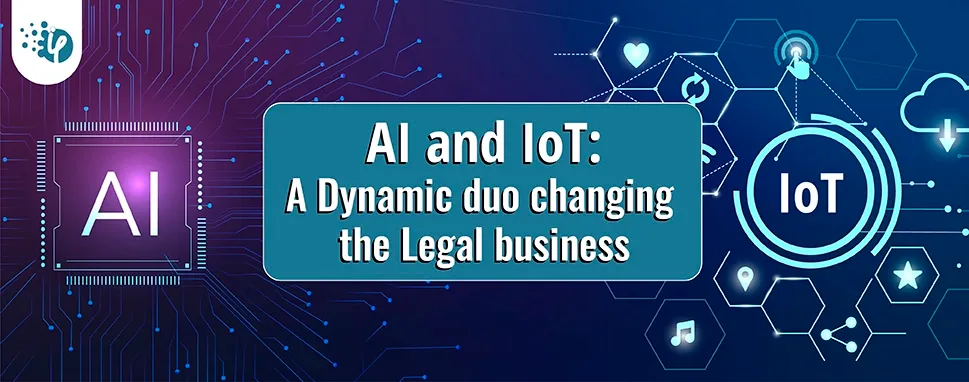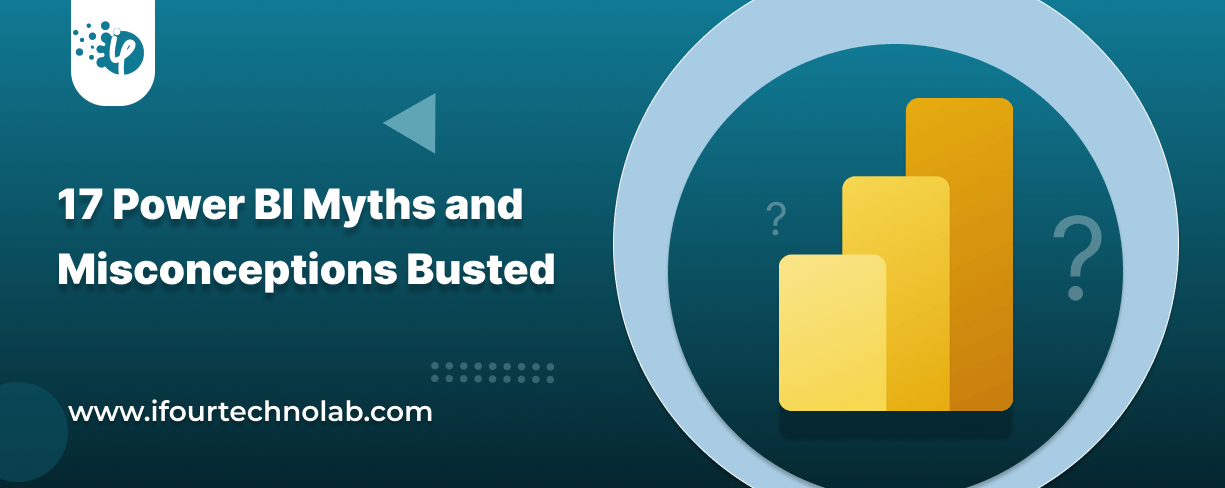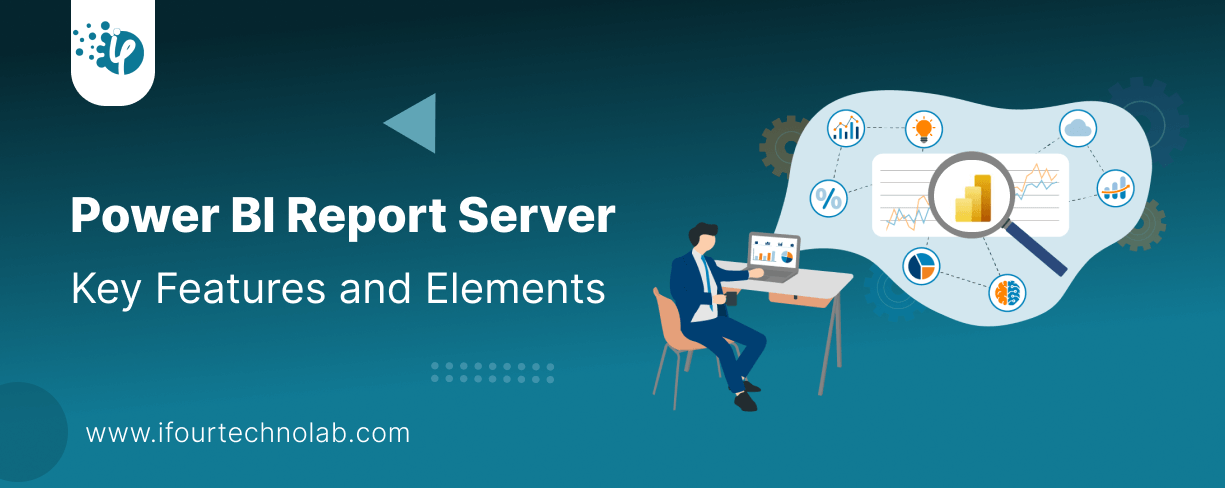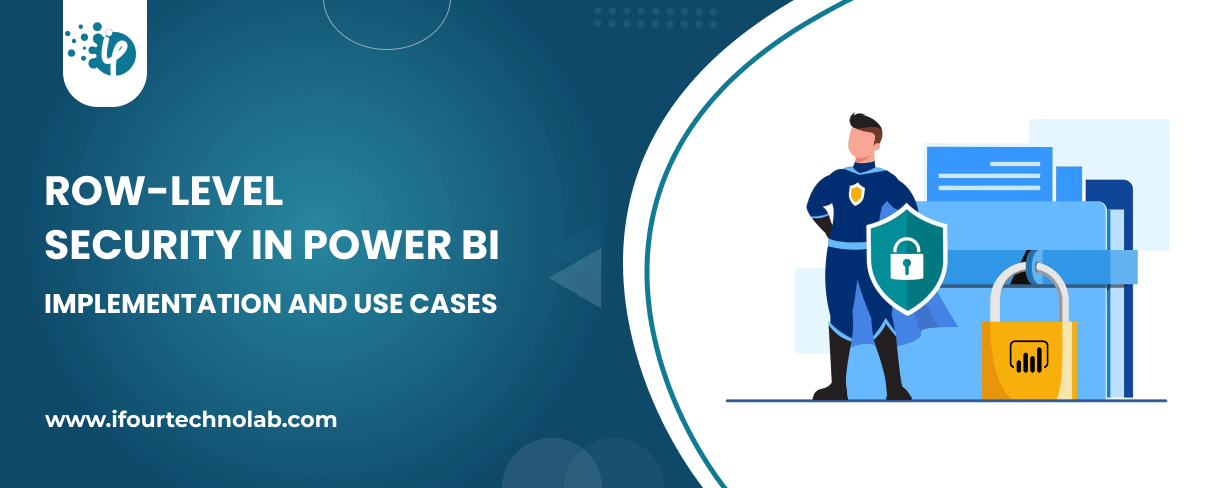17 Power BI Myths and Misconceptions Busted | Uncover the Truth
Did you know that 70% of CTOs (Chief Technology Officers) hesitate to adopt Microsoft Power BI because of its myths and misconceptions that float around. What they fail to see is...
Kapil Panchal - September 05, 2022
Listening is fun too.
Straighten your back and cherish with coffee - PLAY !

It's amazing to watch industries being disrupted by innovation. Isn't it? A decade ago, it was difficult to imagine technologies like artificial intelligence (AI) would use hydraulic pistons and diesel engines to automate tiresome operations.
The combination of AI and IoT can offer tremendous benefits to the Legal industry. For example, they might enhance decision-making processes by anticipating and preparing judicial judgments or provide correct insights by analyzing and deep learning enormous volumes of data to reduce false positives and so on.
In this blog, we will explore how legal businesses may use AI and IoT together to improve their operations.
"AI is now being used to assist in the drafting of contracts, the prediction of legal outcomes, and even the recommendation of judicial judgments on punishment and bail. The benefits of AI in the legal field are real. It has the potential to boost attorney productivity while preventing costly errors. Lawyers can have more time and patience to counsel their clients and improve their work by deploying AI. It may be claimed that implementing AI in law businesses can give the firm a boost, allowing lawyers to perform more efficiently. AI applications for IoT help businesses minimize unplanned downtime, improve operational efficiency, develop new goods and services, and better manage risk."
"The widespread adoption of AI technology is established to change the legal sector and disrupt the future of legal work. Through automation, repetitive legal tasks will be carried out by AI technologies with maximized accuracy and speed, letting paralegals and lawyers concentrate on analytically challenging tasks.
Consequently, some job profiles within the legal sector are likely to shift away from conventional skillsets as law companies hire in-house innovation managers and data scientists to assist them in scanning and driving technological R&D within a competitive market. The IoT also includes what might be termed the Internet of Law, which describes some measures of law enforcement merged with autonomous systems."
"AI is used in every industry nowadays and has paved its way into law and firms. It helps out processes related to paralegals, litigators, and legal researchers. AI is aiding the legal industry in various ways; however, the three main areas are the following:
The IoT introduces what might be defined as the Internet of Law, which illustrates a concept where some law enforcement measures are merged with autonomous systems. Connectivity to countless information and data sources will offer the lawyers quick and real-time access to precious data."
"The role of AI and IoT in the legal industry is significant and ever-growing. As more attorneys adopt these technologies, the potential for increased efficiency and effectiveness in law firms’ skyrockets.
By automating repetitive and low-level tasks, such as document review and data entry, lawyers can focus on higher-level tasks that require critical thinking and analysis. In addition, IoT devices can be used to collect data in real-time, giving attorneys a more complete picture of a case.
For example, if an attorney were working on a personal injury case, they could use IoT-enabled sensors to collect data about the accident scene, the victim's injuries, and any other relevant information.
This data would be instantly accessible to the attorney, allowing them to make more informed decisions about the case.
As AI and IoT continue to develop, the legal industry will become increasingly reliant on these technologies."
"AI and IoT are becoming increasingly important assets in the legal industry. With the help of these tools, we can make better decisions that are much more efficient than our personal judgement alone.
Natural Language Processing is an example of an AI application we can use. This technology involves analyzing written documents through machine learning algorithms and extracting relevant information from them. In courtrooms, large amounts of data are collected from witnesses, police reports, medical records, etc.; this data can then be processed using NLP to help attorneys analyze and prepare their cases for trial."
"In today’s digital climate, almost all industries are getting used to artificial intelligence, and the legal sector is no different. The legal industry has also taken the initiative to implement artificially designed systems in the company to help streamline operations.
It could range from documenting cases to backing confidential files on the cloud. It reduces the need for paralegals to enter data manually, and they can focus on strategic tasks. Security is also an important aspect to consider when it comes to implementing AI. It enables the establishment of a fully secured system where nothing is left to chance.
Law firms can use IoT where systems are integrated with third-party vendors. It would allow lawyers to connect with the local law enforcement agencies, providing them with valuable data. This would enable lawyers to solve clients’ issues in a steadfast manner."
"AI and IoT are now a priority in every industry, with the law being no exception. According to experts, the use of computers will double every year while their cost will decrease considerably.
This will act as the primary basis for the rise in the need for artificial intelligence throughout the global industry. When we apply that to law, attorneys can handle complexities and volume of integrity involved in legal practice.
Nowadays, artificial intelligence is deployed in modeling legal ontology. This concept holds an essential place within legal informatics, which in turn applies to the legal environment context.
AI tools and IoT techniques can also help with extensive legal research. All of this while dealing with the need to store and retrieve abundant amounts of data based on text. Ultimately resulting in conceptual information and intelligent databases."
"AI and IoT have begun to be used to help design legal contracts, and forecast legal outcomes, and they are also helping in making accurate judicial judgments concerning punishment or bail which is by far the biggest change in the legal industry. The potential benefits of AI and IoT in the legal industry are unmatched. Together they can also boost attorney productivity and eliminate costly blunders that are very common in legal matters."
"A top-notch artificially intelligent research platform can finish research in seconds. Whether a law company has 400 or more lawyers or a single practicing lawyer, AI can help assess legal research costs while maintaining consistent quality. With AI technology's assistance, lawyers can accumulate information points from previous or past cases. They can also utilize this information to track the judge's predictions and order. Hence, this technology is likely to gain global significance soon.
IoT is on the horizon and with it appears greater intelligence, which will modernize how the lawyers live and run their firms. The IoT also invented the term “Internet of Law.” It elaborates a concept where some law enforcement measures are merged with autonomous systems. A top-notch example would be the amalgamation of a breath test into a car ignition switch, which would disable a car if the blood-alcohol level of the drivers increases the legal limit. "
"In recent years, the legal industry has been increasingly relying on artificial intelligence (AI) and the internet of things (IoT) to help manage and process data. For example, law firms are using AI to automate the analysis of legal documents, while courts are using IoT to manage and monitor court proceedings.
There are several benefits of using AI and IoT in the legal industry. First, AI can help lawyers process large amounts of data more quickly and efficiently. For example, AI can help identify relevant case law and legal precedent automatically. Second, IoT can help courts manage and monitor proceedings more effectively. For example, IoT can help courts keep track of who is present in the courtroom and when they are scheduled to appear. Third, AI and IoT can help lawyers and judges make better decisions. For example, AI can help lawyers identify potential legal issues in a case, and IoT can help judges better understand the impact of a court ruling.
While there are many benefits to using AI and IoT in the legal industry, there are also some challenges. First, the use of AI and IoT can be expensive. For example, law firms may need to invest in new software or hardware in order to use AI. Second, the use of AI and IoT can be difficult to learn. For example, law firms and courts may need to hire experts in order to use AI and IoT effectively. Third, the use of AI and IoT can be controversial. For example, some people argue that AI can be biased against certain groups of people.
Overall, the use of AI and IoT in the legal industry can be beneficial, but there are also some challenges that need to be addressed."
"In the legal industry, just like in other market areas, artificial intelligence helps to accelerate processes. With the help of algorithms, professionals spend less time on mundane, repetitive tasks, e.g., retrieving vital information from extensive archives, scanning regulation databases, and predicting precedents. Technology supports not only legal analytics but also results in easier access to legal help via dedicated chatbots and faster drafting of documents."
"The legal industry is probably the friendliest environment to introduce AI. Studies have shown that AI can draft and negotiate documents better than most human lawyers. AI can take an assistance role and point out the intricate details of the contract for lawyers to approve (similar to Grammarly).
AI can also help with the contract management process and automate the negotiation, signing, approval, and renewal process with the click of a button. A smart contract can also be used to automatically perform the contract."
"It's interesting that people feel AI is all about robots and autonomous cars, but in reality, AI helps do wonders through small things which make a bigger impact in our lives - by saving our time and effort and increasing efficiency.
We at VIDIZMO have done the similar - big things for our customers by providing AI solutions for digital media. For instance, generating transcripts through AI because doing transcription manually takes hours which decreases efficiency. With AI, you can save hours when you're dealing with countless video and audio data!
Similarly, AI-generated transcripts help in the search of videos through spoken words because it's almost impossible and counter-productive to open and go through every video - if you need to find that one video amongst thousands.
We also observed in government organizations that there was a lot of sensitive data (faces, objects, persons, license plates, words spoken, etc.) which had to be redacted, so AI-based video indexing plays a great role since it can easily detect and redacted within a few clicks. What used to take hours can now be done in minutes."
"One of the primary uses of AI in the legal industry today is for research. Anything from examining a legal contract to developing a case for trial requires research - and sometimes that research is incredibly extensive. Even if you have a big team working on compiling research, it takes a lot of time and effort, and you might still miss vital information that could be pertinent for your defense or precedence. AI can be programmed to track, compare, and analyze data, it can be used to find related case law based on keywords, it can scan files for information in mere seconds, and more."
"AI and IoT are considered among the top ten technology trends in the Legal industry and their impacts are huge. First, they are making it easier for lawyers to research cases. AI can analyze mountains of data to find relevant cases and legal precedents, while IoT can help lawyers track new legislation and case law as it is released. This makes it easier for lawyers to stay up-to-date on the latest legal developments.
Second, AI and IoT are making it easier for lawyers to predict outcomes in cases. AI can analyze vast amounts of data on similar cases to identify patterns and trends, while IoT can help lawyers gather information on the defendant or plaintiff to help them make more accurate predictions.
Third, AI and IoT are making the legal process more efficient. For example, AI can help lawyers draft contracts and other legal documents, and IoT can help lawyers keep track of court deadlines and other important dates. This can help lawyers save time and money.
AFourth, AI and IoT are helping to create more accurate legal records. AI can help identify mistakes in legal documents, and IoT can help track the movement of assets and other important information. This can help to prevent legal disputes and resolve them more quickly if they do occur.
Overall, AI and IoT are making the legal industry more efficient, accurate, and up-to-date. This is helping lawyers to provide better service to their clients and is making the legal process fairer and more equitable.
When integrated with IoT, AI has the potential to deliver enormous benefits to the legal business. They may enhance decision-making processes, analyze, and deep learn massive amounts of data, safeguard intellectual property rights, and so on. In this article, we discussed how AI and IoT may play a significant role in boosting the legal business.

Did you know that 70% of CTOs (Chief Technology Officers) hesitate to adopt Microsoft Power BI because of its myths and misconceptions that float around. What they fail to see is...

Every CTO knows the struggle of managing complex reports. The inefficiency of scattered data, the constant juggling between reporting tools, the challenge of ensuring accurate KPIs...

The very first reason why you should implement Row Level Security is to foster trust, a crucial element for any business's success. Next, it reduces data clutter and helps you load...